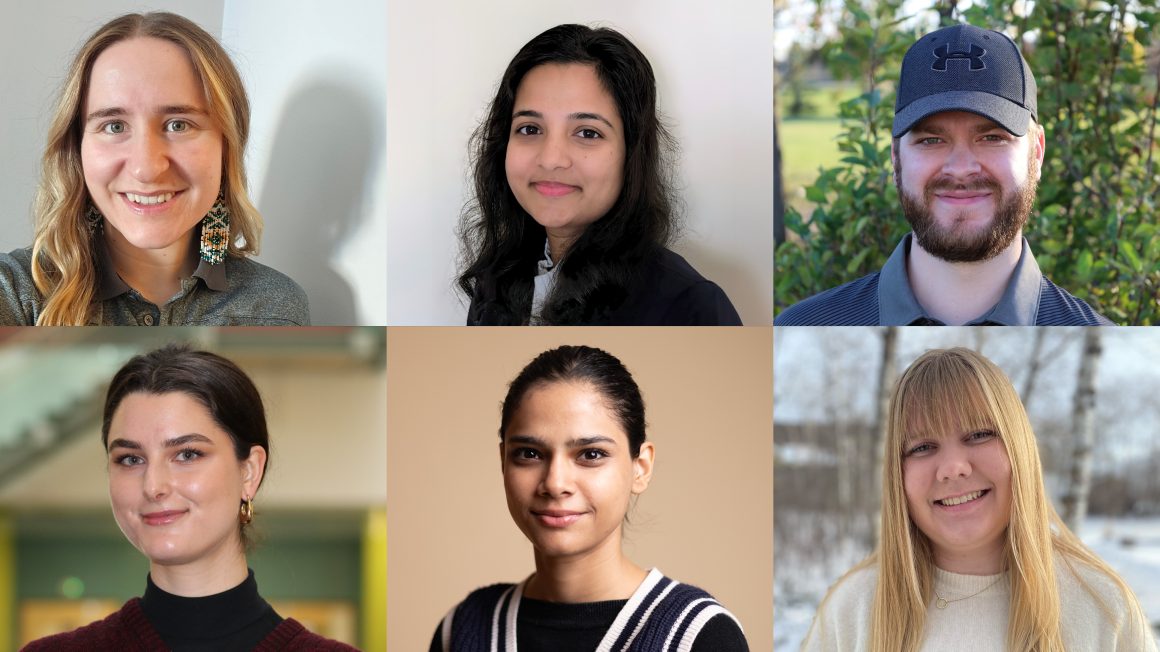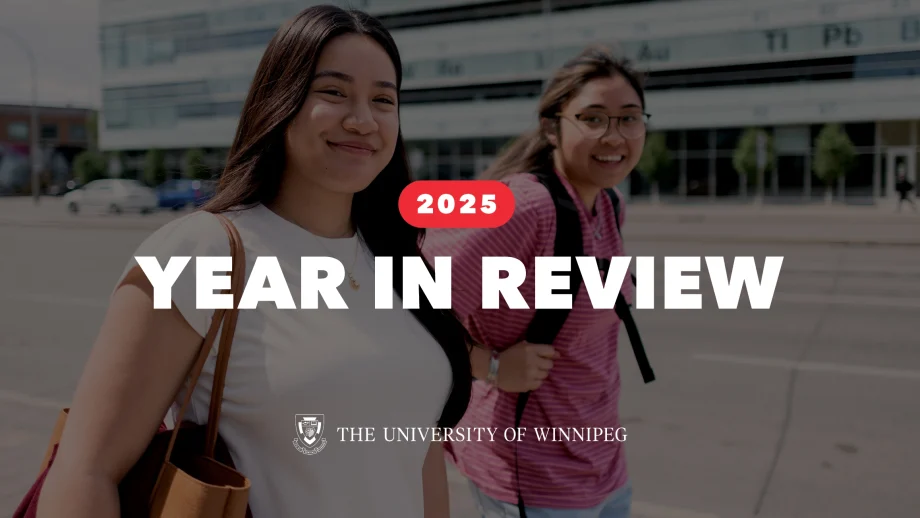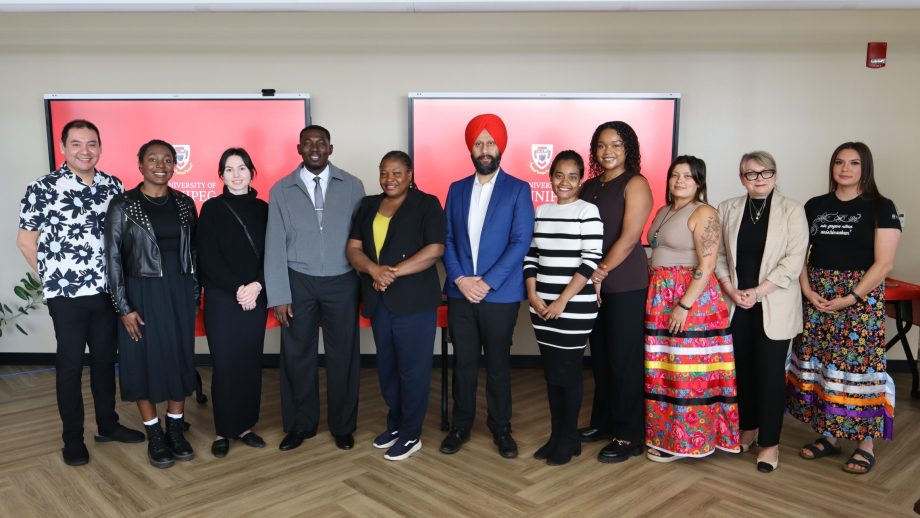Six students in The University of Winnipeg’s Faculty of Graduate Studies have received Trainee Awards from Research Manitoba.
The awards, which were announced this summer, spread $1.31 million among 54 recipients studying in Manitoba at the master’s, doctoral, and post-doctoral level. Research Manitoba’s health-care partners contributed $340,000—over 25 percent—of that $1.31 million. Each award consists of an annual stipend for one year.
The funded research projects encompass a range of academic fields, including neuroscience, health care, environmental science, and history.
The award is a tremendous vote of confidence in my project, for which I am very thankful.
Jayson Gislason
“By supporting these individuals, we are supporting the creation of new research programs ensuring that Manitoba remains at the forefront of scientific and technological progress,” said Jennifer Cleary, CEO of Research Manitoba. “We are excited to see the impact these projects will have on our community and beyond.”
Three of UWinnipeg’s six recipients—Camille Forbes, Indeera Hetti Arachchige, and Tia Bartel-Ens—are candidates in the Master in Environmental and Social Change program.
The other three recipients are Madison Chisholm and Ranjini Mukherjee, candidates in the Master of Science in Bioscience, Technology and Public Policy program, and Jayson Gislason, a candidate in the Joint Master of Arts in History program.
About the recipients
Tia Bartel-Ens is tracking changes in dissolved organic matter in boreal regions.
“Carbon varies widely along different catchments, and my project looks at establishing a method, in order to resolve the missing information in regards to carbon transport, and the relationships between catchments,” Bartel-Ens explained. “This is important, as the climate crisis continues to alter such relationships, impacting environmental processes.”
Bartel-Ens said she was “incredibly grateful” for the award.
“It not only provides financial support, but also opens doors for future research and collaborations, and recognizes the importance of the project. It also encourages me to continue on in my research.”
Indeera Hetti Arachchige is studying solutions for minimizing the phosphorus loss to snowmelt runoff from agricultural soils in Manitoba. She said the award will help her expand the scope of her project.
“Receiving this award was exciting and motivational as I felt it was a tribute to my hard work,” Hetti Arachchige said. “At the same time, I felt the responsibility of receiving this competitive award.”
Camille Forbes is examining the inclusion of Indigenous people in the planning process of climate change adaptation work within northern Manitoba’s forestry sector.
“I will look at the forest license renewal process to see how Indigenous people are being included when planning actions that respond to climate change,” she explained.
Forbes said she was “very grateful” to receive this award.
“It recognizes the hard work and dedication I have put in, and will continue to put in, to my research. It is a significant accomplishment in my career.”
Ranjini Mukherjee is examining persistent organic pollutant toxicity in Canadian polar bears, and the impacts on the bears’ cellular and immunological health.
Mukherjee said receiving the award “marks a transformative milestone in my academic and professional journey” to becoming an independent researcher.
“It opens up invaluable opportunities for collaboration with leading professionals and organizations within Manitoba. Additionally, the network and partnerships facilitated through this program will enhance my professional development, opening doors to future collaborations and ultimately enabling me to contribute to the innovative landscape of Manitoba.”
Madison Chisholm is researching the precision of axon diameter inferences in MRI machines. She said the award “represents a significant milestone for both my research project and my career.”
“It acknowledges the hard work and dedication invested in my project, validating its potential impact,” Chisholm said. “Additionally, this recognition opens the door to new opportunities for collaboration and provides a platform to reach a broader audience. This award inspires me to continue striving for excellence and innovation in my field of research.”
Jayson Gislason is studying land acknowledgements as tools of reconciliation and history education in Treaty One Territory.
“The Research Manitoba award will allow me to concentrate on researching and writing my thesis, which incorporates the modern practice of land acknowledgements into the broader history of treaty recognition and performance,” he said. “The award is a tremendous vote of confidence in my project, for which I am very thankful.”
Research Manitoba’s Trainee Awards support highly qualified Master’s students, PhD Trainees, and Postdoctoral Fellows, preparing them for careers as independent researchers across various sectors including industry and the health-care system, among others.





